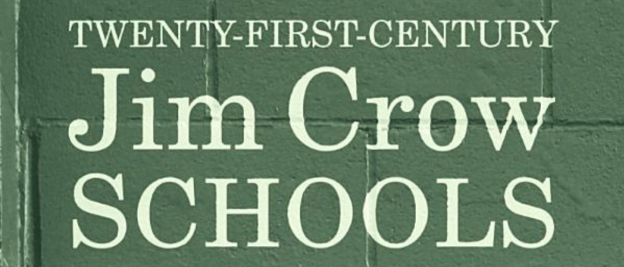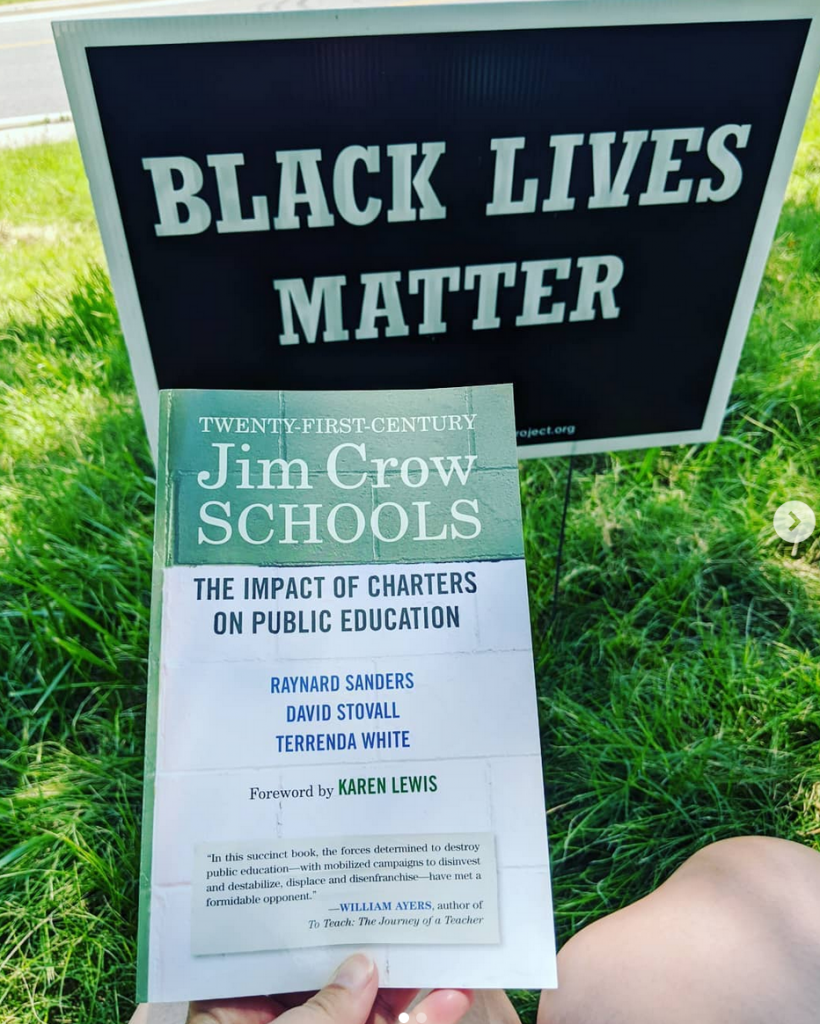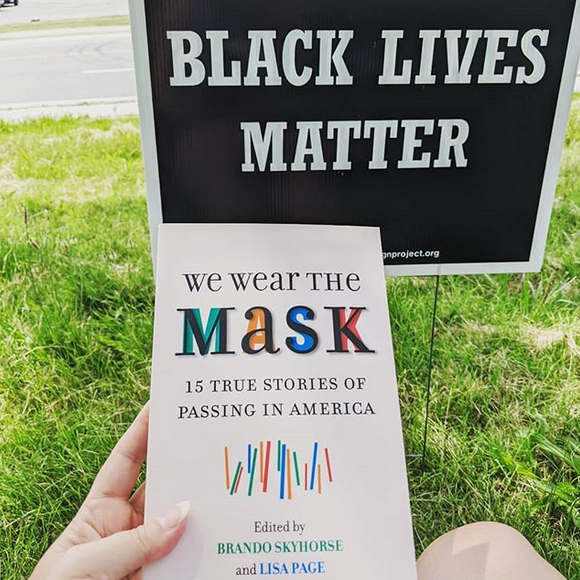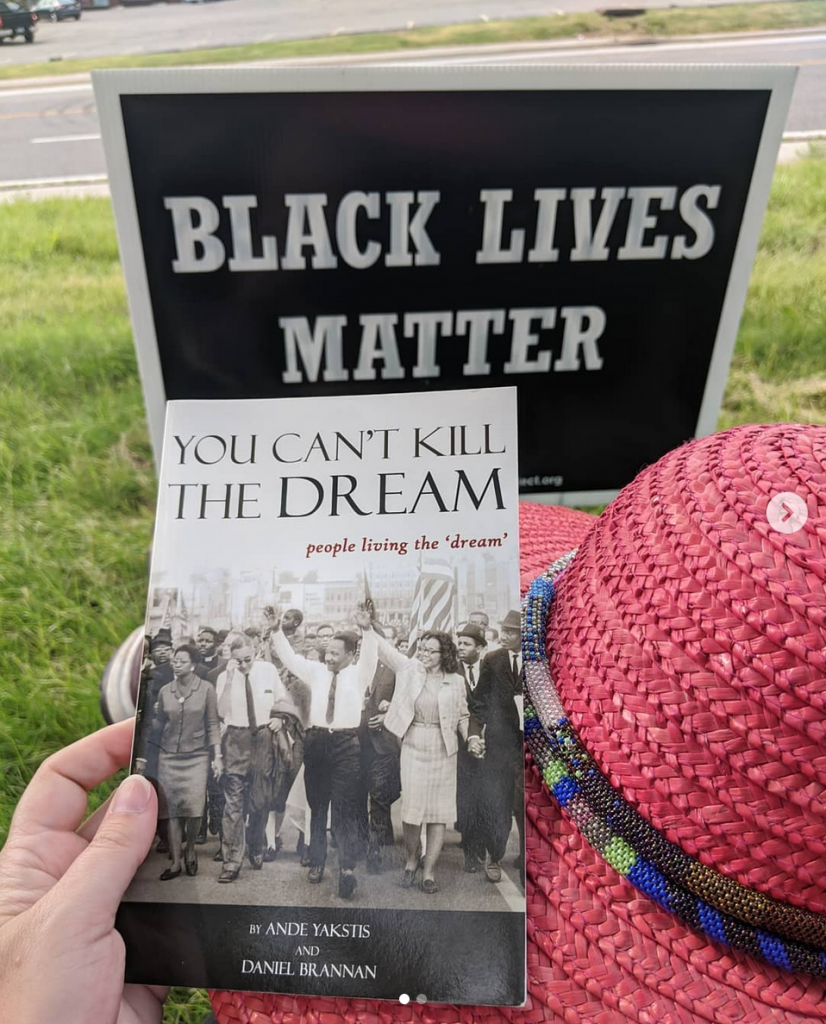I won a copy of To Obama (by Jeanne Marie Laskas) through Goodreads. I read it during my solo protest sit-in.
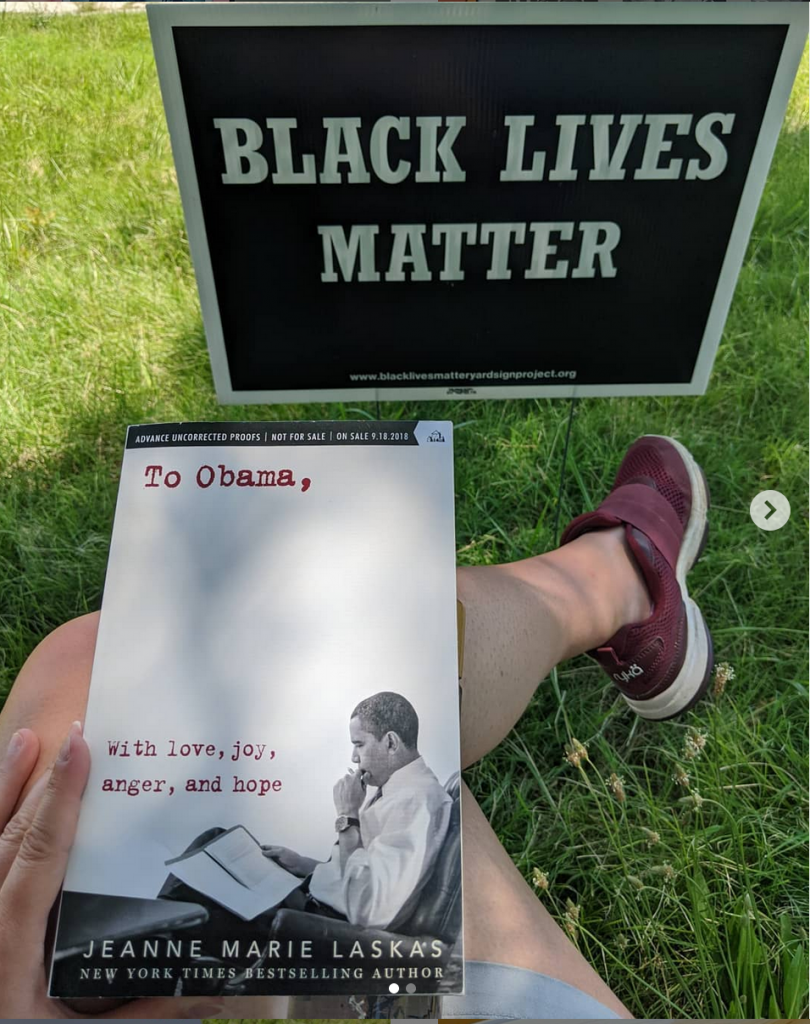
Description:
Every evening for eight years, at his request, President Obama was given ten handpicked letters written by ordinary American citizens–the unfiltered voice of a nation–from his Office of Presidential Correspondence. He was the first president to interact daily with constituent mail and to archive it in its entirety. The letters affected not only the president and his policies but also the deeply committed people who were tasked with opening and reading the millions of pleas, rants, thank-yous, and apologies that landed in the White House mailroom.
In To Obama, Jeanne Marie Laskas interviews President Obama, the letter writers themselves, and the White House staff who sifted through the powerful, moving, and incredibly intimate narrative of America during the Obama years: There is Kelli, who saw her grandfathers finally marry–legally–after thirty-five years together; Bill, a lifelong Republican whose attitude toward immigration reform was transformed when he met a boy escaping MS-13 gang leaders in El Salvador; Heba, a Syrian refugee who wants to forget the day the tanks rolled into her village; Marjorie, who grappled with disturbing feelings of racial bias lurking within her during the George Zimmerman trial; and Vicki, whose family was torn apart by those who voted for Trump and those who did not.
They wrote to Obama out of gratitude and desperation, in their darkest times of need, in search of connection. They wrote with anger, fear, and respect. And together, this chorus of voices achieves a kind of beautiful harmony. To Obama is an intimate look at one man’s relationship to the American people, and at a time when empathy intersected with politics in the White House.
Review:
I absolutely did not expect to like this as much as I did. I read an ARC (advanced reading copy). While I wouldn’t normally even mention the status of the book as an ARC, because it often doesn’t matter beyond maybe a temporary cover and final editing pass. Here I have to. It was the letters that made this so intriguing. Seeing all the ways Americans (often average Americans) wrote to the president is stunning. This copy that I read had several pages labeled TK (to come) where letters would be, but were not yet. So, this is one of the very few times I wish I’d had a final copy instead of an ARC. I want those letters, want them enough that I’m planning to check the book out next time I’m at the library to see the ones I missed. (Which I think should tell you how much they affected me.)
People tend to write to presidents in moments of strong emotion, often (though not always) at low points. Honestly, I teared up so many times I checked the calendar just to be sure I wasn’t just hormonal before menses or something.
Laskas chapters about her experience in/with the mail room and her interviews with letter writers were very ethnographic. I can imagine the style won’t sit well with everyone. I happened to enjoy it. However, I felt like the book wasn’t as centered as it could have been about its actual point beyond Obama’s letter reading was cool and took a lot of work. I also struggled in a few places with the direction she took her narrative. I understand that people and families are messy. But the chapter about the mother who wrote Obama about her family in which the father voted Trump despite having a gay son and Mexican daughter-in-law, for example, ended with the entire family placating the father despite voicing how hurt they all were by the vote. The message felt very much like his obstinance was more important than their lived experiences and they should all just have to suck it up.
All in all, it was a winner for me.
